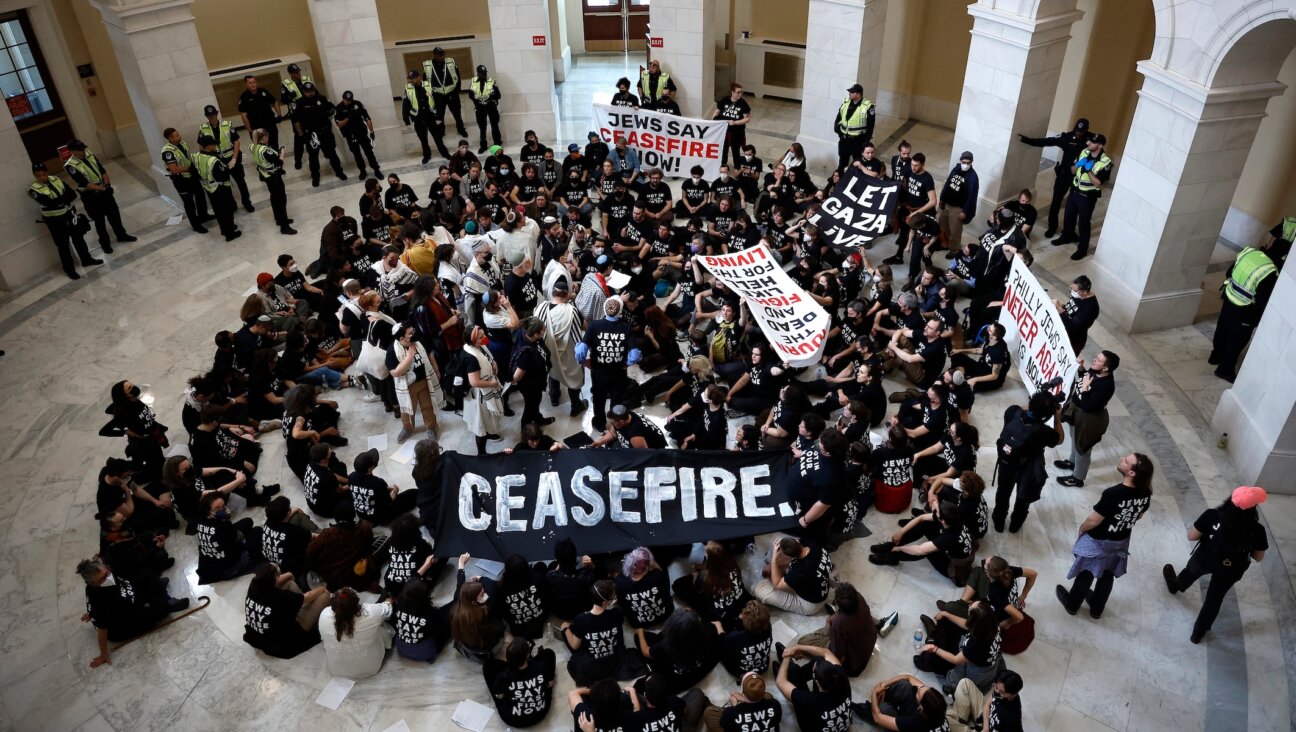Israel Mourns ‘Great Friend’ Ted Kennedy
President Shimon Peres on Wednesday expressed deep sorrow on behalf of Israel at the death of U.S. Senator Ted Kennedy, who died at age 77 on Tuesday night, following a battle with cancer.
Peres said that Kennedy was a particularly respected leader with an interest in helping society, and added that his death was a great loss for every thoughtful person in the world.
“Kennedy was a clear friend of Israel the whole way, and in every place that he could help us he did help,” he added.
Foreign Minister Avigdor Lieberman also expressed his condolences, calling Kennedy a great friend of Israel and the Jewish people.
He added that Kennedy protected human rights, and was the son of a distinguished family who stood by Israel, even in difficult times, during his many years of service in the Senate.
Kennedy reflected the deep ties shared between Israel and the U.S., Lieberman said.
Kennedy, a major figure in the Democratic Party who took the helm of one of America’s most fabled political families after two older brothers were assassinated, died late Tuesday.
“Edward M. Kennedy, the husband, father, grandfather, brother and uncle we loved so deeply, died late Tuesday night at home in Hyannis Port (Massachusetts),” the Kennedy family said in a statement.
One of the most influential and longest-serving senators in U.S. history – a liberal standard-bearer who was also known as a consummate congressional dealmaker – Kennedy had been battling brain cancer, which was diagnosed in May 2008.
“We’ve lost the irreplaceable center of our family and joyous light in our lives, but the inspiration of his faith, optimism, and perseverance will live on in our hearts forever,” the family statement added.
His death marked the twilight of a political dynasty, and dealt a blow to Democrats as they seek to answer U.S. President Barack Obama’s call for an overhaul of the healthcare system. Kennedy had made healthcare reform his signature cause.
Known as “Teddy,” he was the last of four sons and five daughters born to millionaire businessman Joseph Kennedy, who would later be ambassador to Britain, and his wife Rose.
He was the brother of President John Kennedy, assassinated in 1963, Senator Robert Kennedy, fatally shot while campaigning for the 1968 Democratic presidential nomination, and Joe Kennedy, a pilot killed in World War II.
Robert Kennedy was assassinated by a 24-year-old Palestinian immigrant named Sirhan Sirhan, who remains in prison for the crime to this day. Sirhan testified at his trial that he began to hate Robert Kennedy after learning of the latter’s support for Israel.
Edward Kennedy was elected to the Senate in 1962, when his brother John was president, and served longer than all but two senators in history.
After Robert Kennedy’s death, Edward was expected to waste little time in vying for the presidency. But in 1969, a young woman drowned after a car Kennedy was driving plunged off a bridge on the Massachusetts resort island of Chappaquiddick after a night of partying.
Kennedy’s image took a major hit after it emerged he had failed to report the accident to authorities. He pleaded guilty to leaving the scene and received a suspended sentence.
Kennedy eventually ran for his party’s presidential nomination in 1980 but lost to then-President Jimmy Carter.
His presidential ambitions thwarted, Kennedy devoted himself to his Senate career.
During his nearly half century in the chamber, Kennedy became known as one of Washington’s most effective senators, crafting legislation by working with lawmakers and presidents of both parties, and finding unlikely allies.
At the same time, he held fast to liberal causes deemed anachronistic by the centrist “New Democrats,” and was a lightning rod for conservative ire.
He helped enact measures to protect civil and labor rights, expand healthcare, upgrade schools, increase student aid and contain the spread of nuclear weapons.
Kennedy’s illness kept him from attending the funeral of his sister, Eunice Kennedy Shriver, a leading advocate of the metally disabled, who died on Aug. 11 at the age of 88.




















